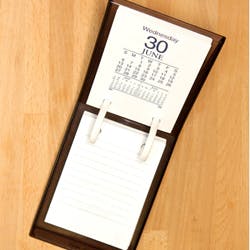The end of the financial year (EOFY) is less than eight weeks away now, and it’s important small business owners know what tax obligations and changes need to be accounted for, before June 30.
1. Maximise super contributions
All good things must come to an end. This is the final financial year for the $50,000 concession cap for members over 50. From July 2012 it will be halved ($25,000) and indexed moving forward.
For anyone over 50, go and salary sacrifice your salary up to $50,000 or make a lump sum contribution. Don’t forget this includes your 9 percent that your employer already pays for you, so make sure you don’t go over this amount. If you do, you face being taxed at the highest marginal tax rate.
Even if you are under 50, you can still put in up to $25,000 per year. It’s a great tax saving strategy, especially if you’re using a financial planner to invest this money wisely.
2. Property investment
Are there any repairs that you need to perform on a rental property? Then you should consider doing them now, to allow you claim the tax deduction.
It might also be a good idea to:
- Think about prepaying interest for 12 months.
- Travel to inspect your rental property to make sure everything is spot on.
- Get a depreciation report, as the cost of the report is deductible along with the massive depreciation that it allows you to deduct.
3. Small business tax breaks
As a small business, you’re entitled to some great deductions and write-offs. It might be a good idea though, to make your purchases next year as the immediate write-off threshold jumps to $6,500, instead of $1,000.
4. Trust distributions and company loans
It’s important to remember that you now must physically allocate your distributions if they’re going to a company, or you risk them being caught under Div 7A.
Company loans also need to be revisited. Make sure you have a loan agreement in place that meets the minimum standards.
5. Dividends
Use some of your retained earnings to top up wages to the $80,000 bracket, but make sure you remember to keep it all within the 30 percent tax bracket.
6. Pre-payments
Bring forward any payments, repairs or maintenance you can do year, in order to increase deductions for this financial year.
- It’s a good idea to pre-pay 12 months worth of any expenses you can, such as rent.
- Put off invoicing and receiving payment for work until July, so you defer the tax until next year.
- Review your asset register and determine what items need to be replaced – this also goes for obsolete or damaged stock.
- Declare any bonuses or director’s fees before 30 June. You don’t have to pay these before 30 June, but the company must be committed to the payment via a director’s resolution.
- If you sell shares or real estate, remember that for Capital Gains Tax purposes the payment is based on the contract date and not the settlement date. If possible, try to push back signing the contract to July, to defer that tax bill to next year.
7. Write-off bad debts
If they aren’t going to pay, then write the debts off and get the tax deduction for it.
8. ATO Benchmarking
The ATO has issued a list of benchmarks showing what they believe your business should be able to prove in the way of income and expenses.
If you fall outside their range consider yourself a target to be questioned. If you have reasonable grounds to be, then you have nothing to worry about.
9. Personal Service Income
This is an area all individuals, businesses and contractors should be wary of. In short, if you receive more the 80 percent or more of your income from one client you could be caught under the PSI rules. You should call your accountant to discuss this, as this can have varied effects of your deductions and personal income situation.
10. Government Co-Contributions
If you or your partner earn less than $31,920, consider making a contribution of $1,000 to super and the government will match it, dollar for dollar. The co-contribution gradually decreases from $31,920 until it is ceases at $61,920.
11. Small Business Concessions for Capital Gains Tax (CGT)
If you are classed as a small business, and have sold your business or active business assets, you may be able to claim a reduction in the amount of Capital Gains Tax payable on these transactions.
If you have not already sold you business but are considering it, I would suggest your accountant to discuss these test before you enter into a contract. The tests are:
- A 15 year exemption.
- A 50 percent reduction for active asset.
- $500,000 retirement concession.
- Replacement asset roll-over relief.
12. Flood Levy
Be aware of the new tax, introduced this year. Below is the table showing the amount of tax payable:
| Taxable income | Flood levy on this income |
| $0 to $50,000 | Nil |
| $50,001 to $100,000 | Half a cent for each $1 over $50,000 |
| Over $100,000 | $250 plus 1c for each $1 over $100,000 |

